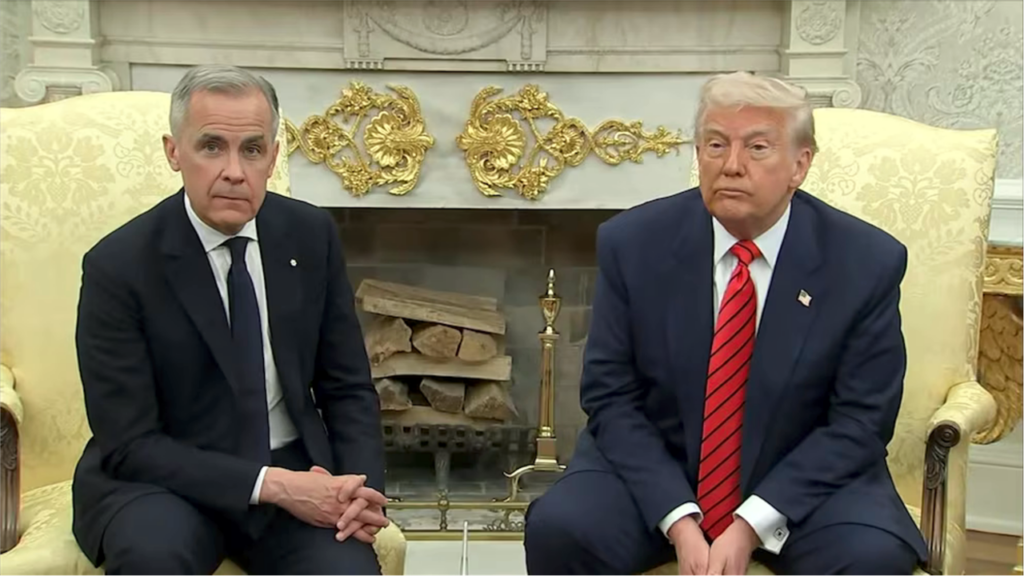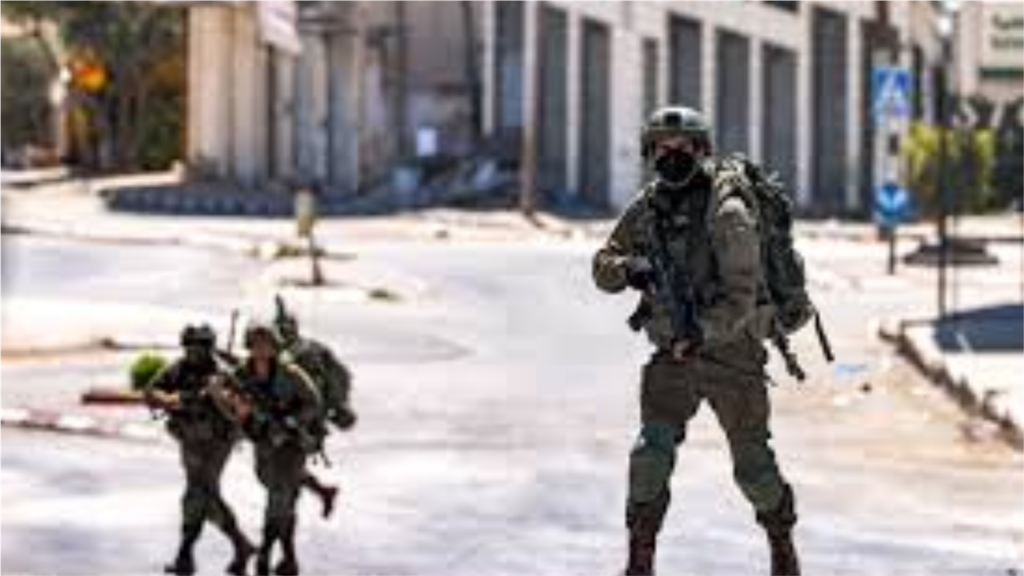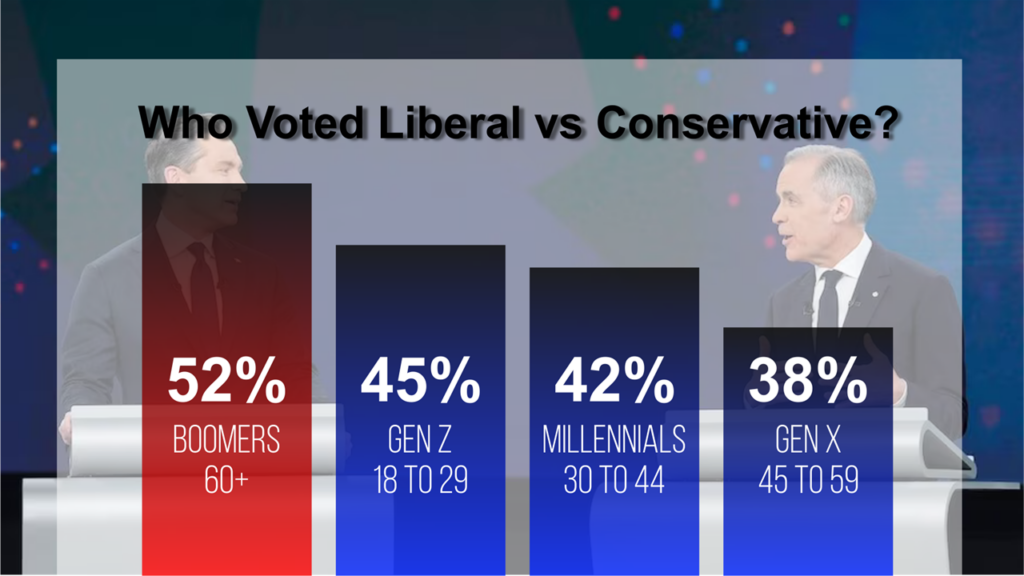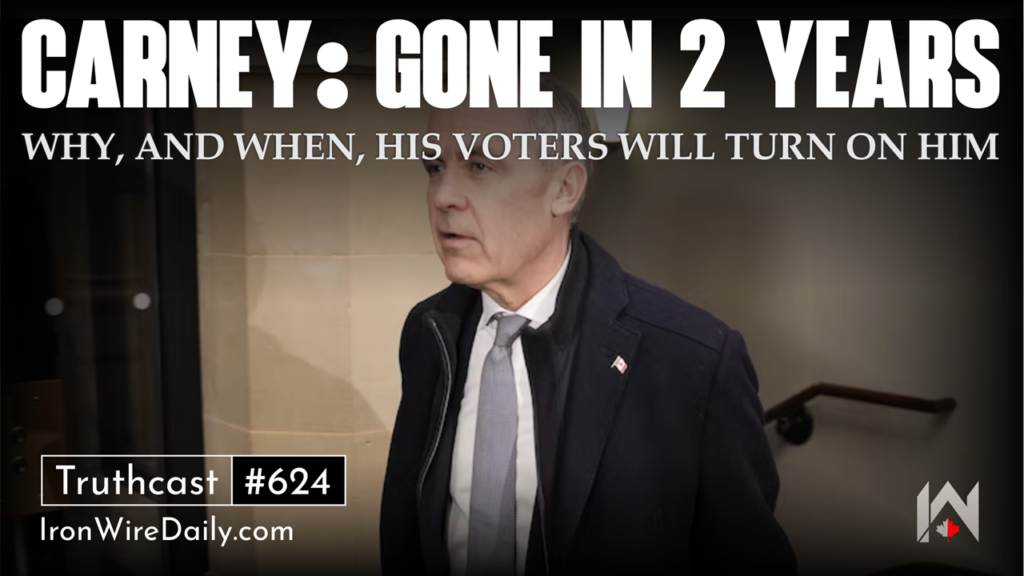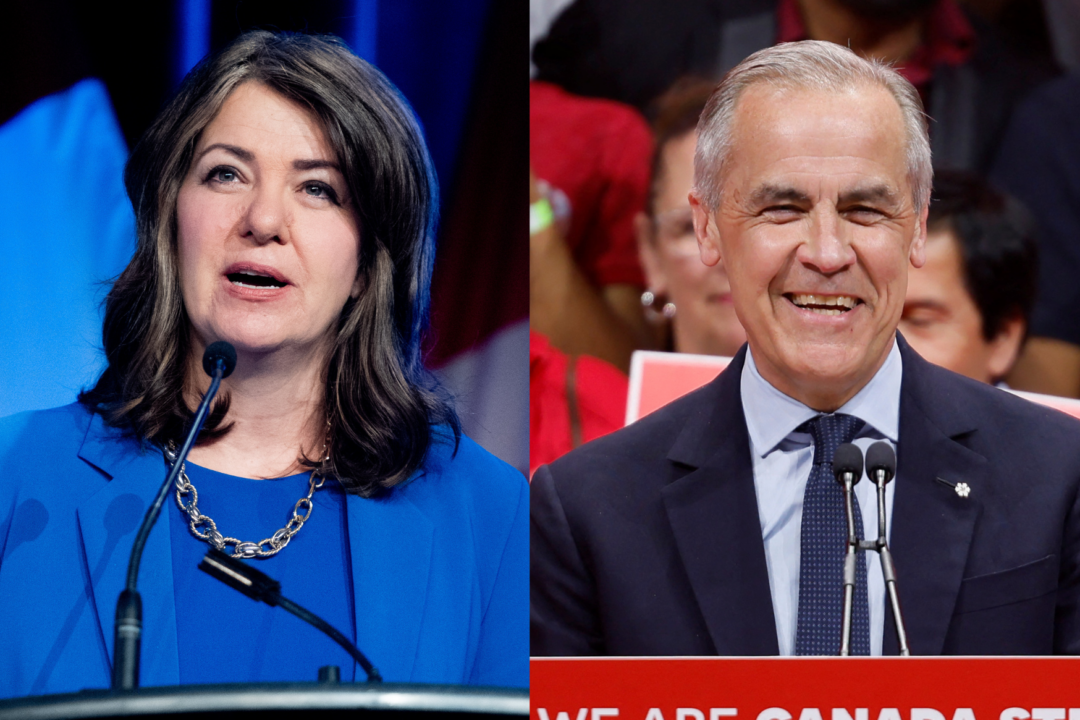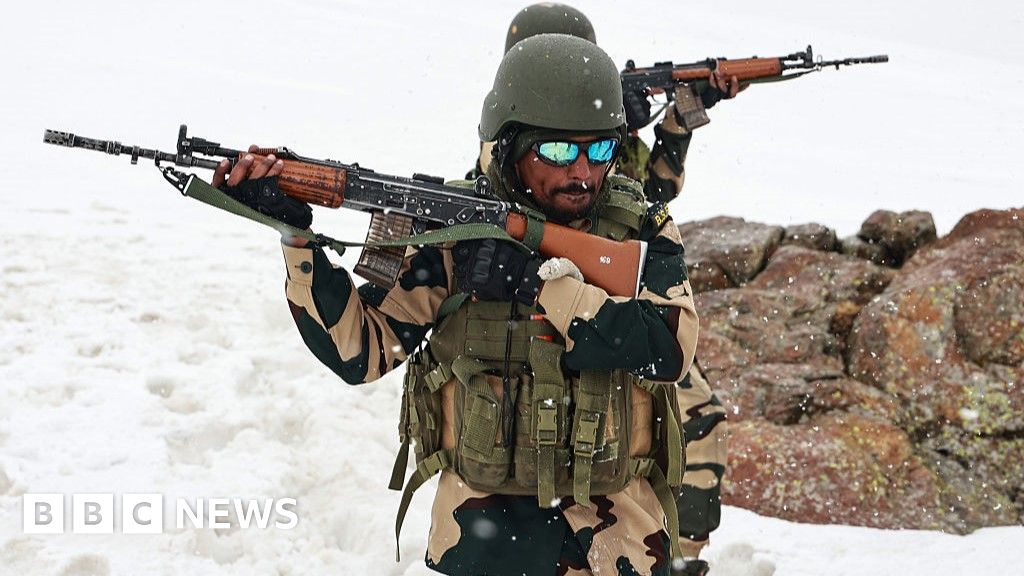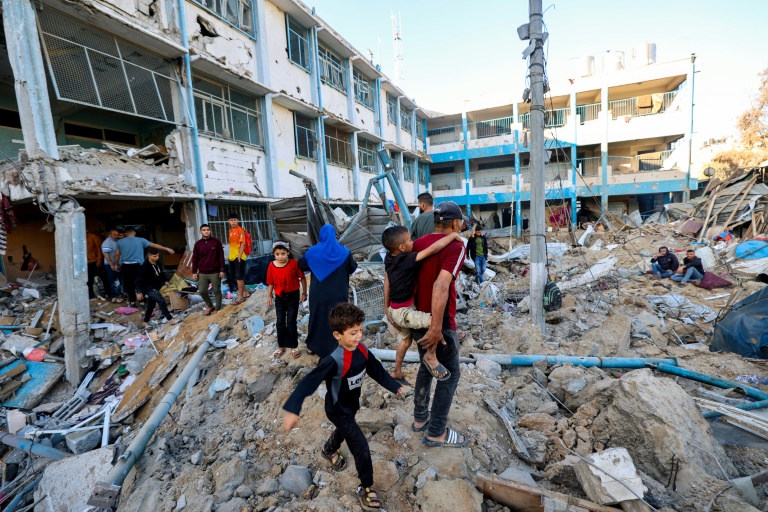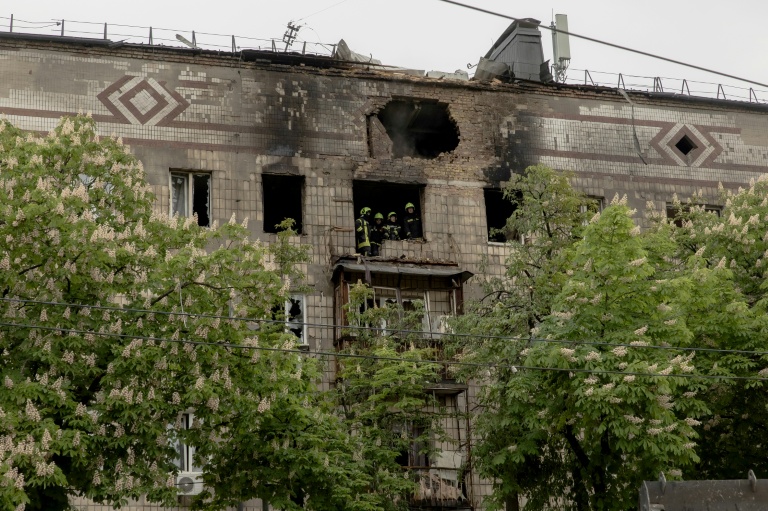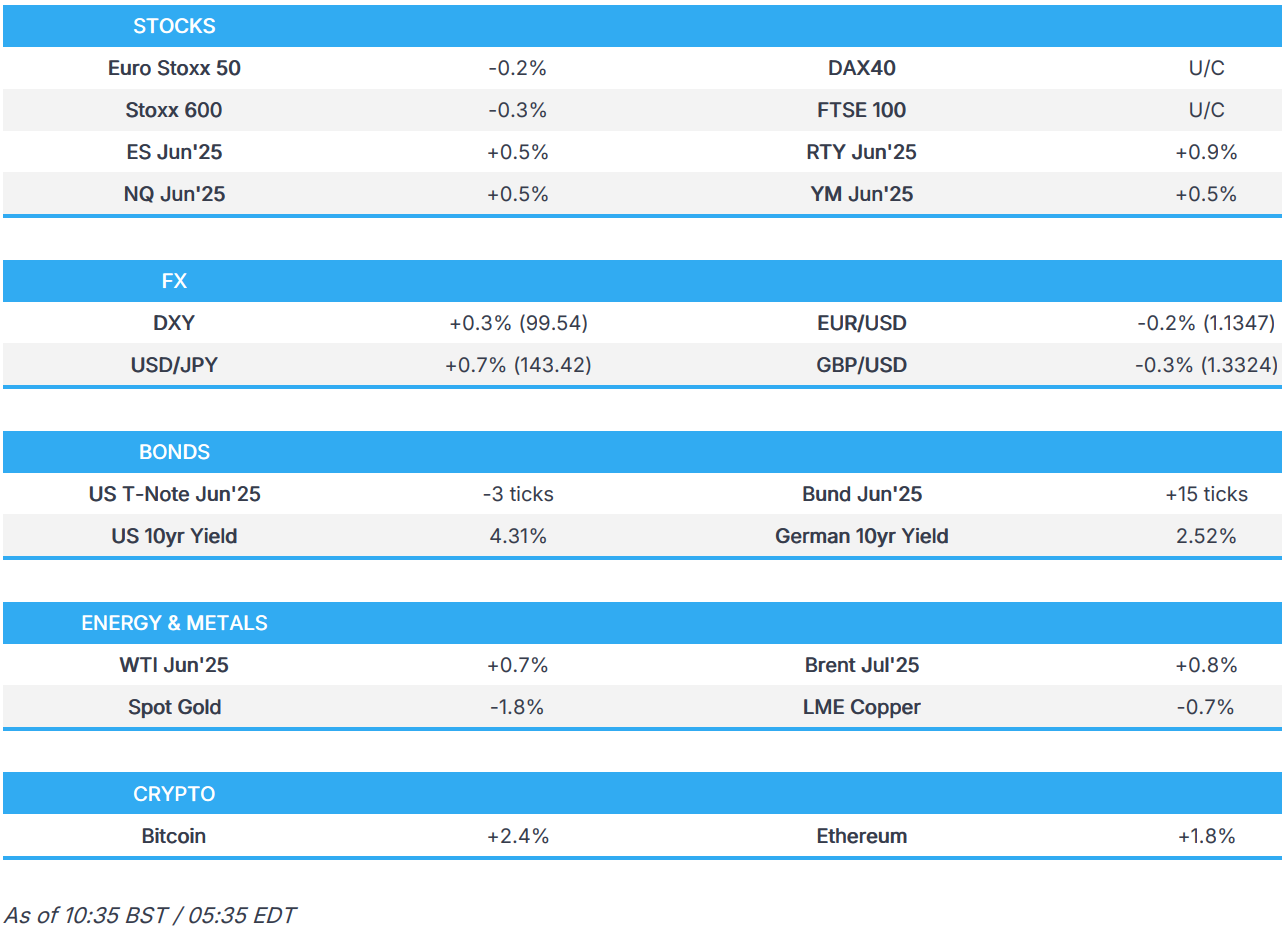‘Why would we play Putin’s game?’: Ukrainians see Russian lull as sideshow

Joel Gunter
BBC News
Reporting fromKyiv

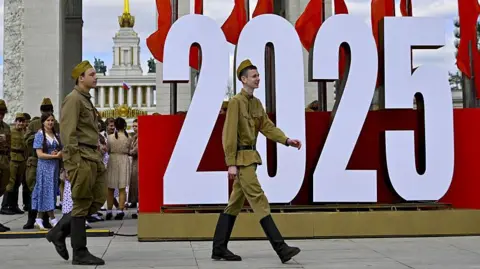 Getty Images
Getty Images
Russia is expected to begin a self-declared three-day pause in fighting against Ukraine on Wednesday night, in a move derided by many Ukrainians and described by President Volodymyr Zelensky as little more than a “theatrical show”.
Russia’s Vladimir Putin proposed the three-day ceasefire to coincide with the anniversary of the end of World War Two in Europe – a public holiday in Russia on Friday known as Victory Day.
But in doing so Putin has rejected a much more substantial proposal from the Trump administration for a 30-day ceasefire and negotiations – a proposal that was accepted by Ukraine.
Zelensky has in turn rejected Russia’s unilateral three-day ceasefire and said that Ukraine will not guarantee the safety of a celebratory military parade in Moscow’s Red Square on 9 May.
The Russian proposal has been met with widespread cynicism in Ukraine, where polls consistently suggest that about 95% of the population distrusts Russia.
“I don’t believe there will be any ceasefire,” said Tetyana Kondratenko, 42, a shopkeeper in Khotin Village in Sumy, a heavily bombarded region about six miles (10km) from the Russian border.
“Lately the shelling has only intensified, for half the day today we have heard boom after boom,” Ms Kondratenko said in a phone interview.

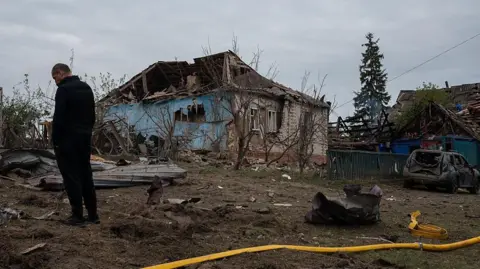 Getty Images
Getty Images
Zelensky was right to reject the proposal “because you know how they operate, like what happened at Easter”, she added, referring to the Russians.
“They announced a ceasefire, then used it to bring in more equipment and started attacking again. What kind of ceasefire is that?”
Last month, around Easter, Russia proposed a similar 30-hour cessation in hostilities but was later accused by Ukraine of violating its own suggested truce nearly 3,000 times.
On that occasion, rather than rejecting the proposal outright, Ukraine said it would mirror Russia’s actions.
A senior Ukrainian military officer told the BBC at the time that frontline units received an order to stop firing at Russian positions, but to record evidence of Russian violations and return fire if needed.
By Wednesday Ukrainian officials had not said categorically whether they would adjust their military action over the three-day period. Asked if Ukrainian forces planned to continue military operations, a source in the presidential office told the BBC: “We’ll see.”
From Novosofiivka village, in the very badly hit region of Zaporizhzhia, Antonina Sienina, 35, said that any ceasefire worth agreeing to should come with “solid guarantees” for Ukraine’s safety and sovereignty – not something included in Putin’s plan for the next three days.
But Ms Sienina had mixed feelings. Her parents were killed in a Russian strike, her brother has been wounded, and her village has been pounded, so “maybe it wasn’t right to refuse” the three-day proposal, she added.
“Because honestly, we would be happy even for just one day without explosions. Just to take the kids somewhere, to a shopping mall, to a playground, to some attractions,” she said.
“We dream of the war being over, or at least a temporary ceasefire, because my children are exhausted. The nerves, the medications, the sleepless nights. It’s too much.”

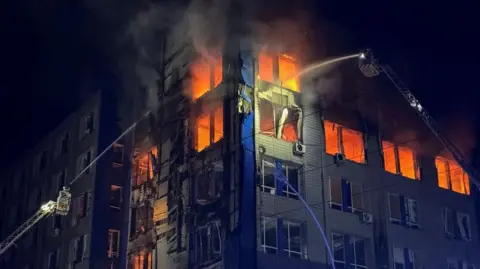 Reuters
Reuters
Residents of the Ukrainian capital Kyiv were kept awake in the early hours of Wednesday morning by Russian drone and missile strikes on the city. A ballistic missile was successfully shot down by air defence systems but a drone hit a block of flats, killing a mother and her son and injuring at least six more, including a child.
The mayor of Moscow said on Wednesday that Russian air defences had downed 14 Ukrainian drones overnight. The Kremlin said that the drone attacks had no bearing on its plans to pause fighting for three days.
The pause is not being taken seriously in Ukraine, for the most part. It has been greeted instead as more of a propaganda exercise. Pavlo Klimkin, the former foreign minister of Ukraine, told the BBC it was simply another Russian show of force.
“This is all about Russia framing the agenda on its own terms,” Klimkin said. “It has nothing to do with a real ceasefire. It is all about messaging – messaging internally, messaging to the US, messaging to Europe to say that we, Russia, are in control.”
Talks directed at a substantial ceasefire process began back in February, with US President Donald Trump sending officials to negotiate separately with the leaders of Russia and Ukraine. Ukraine has since agreed to a US proposal for a 30-day unconditional ceasefire, Russia has not.

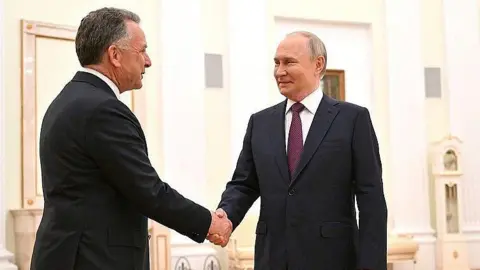 Getty Images
Getty Images
The months since have been a deadly period in the war. Russia has intensively targeted Ukrainian cities with drones and missiles, killing 19 people including nine children last month in a strike on a playground in Kryvyi Rih and 35 people a week later in an Easter strike on the city of Sumy.
According to the UN, at least 848 civilians were killed between 1 and 24 April – a 46% increase on the same period last year.
The level of civilian deaths meant that any ceasefire should be accepted, even on Russian terms, said Oleksii Kamchatnyi, 38, a scientist living in Kyiv.
“It is about saving lives,” Mr Kamchatnyi said. “I’m originally from Donbas, from Pokrovsk. I managed to evacuate my mother but my father stayed there. I haven’t had any contact with him since 9 March.”
Still, Mr Kamchatnyi supported the temporary ceasefire, he said, “even if it means giving up territory.”
Ukrainian polling suggests that a majority of the public would accept the idea of ceding some control of territory seized by the Russians during the full-scale invasion, though not surrendering formal sovereignty over the land, according to Anton Grushetsky, director of the Kyiv International Institute of Sociology.
“There is for certainly a lot of fatigue and there is a lot of desire to have a stable peace in Ukraine,” Mr Grushetsky said.
But based on previous polling, the majority of Ukrainians would likely view the proposed three-day ceasefire as “either a trap or simply a ploy to avoid attacks on Moscow during the holiday”, he added.
There is also suspicion among many in Ukraine that the ceasefire proposal is simply a ploy by Russia to move its forces to strategic places on the battlefield, make reinforcements where needed, and prepare for offensives.
Ukraine had already made clear that it was ready for a full, unconditional ceasefire, and had no obligation to take part in Russia’s agenda, said Mykhailo Samus, a Ukrainian military analyst and director of the New Geopolitics Research Network.
“Why would we play Putin’s game? We are ready for a real ceasefire,” Mr Samus said. “If he wants to organise a parade to show that he is a great leader, that is his business.”
Daria Mitiuk contributed to this report.
